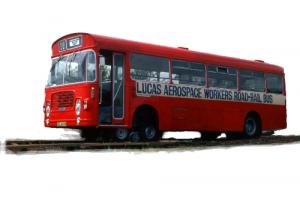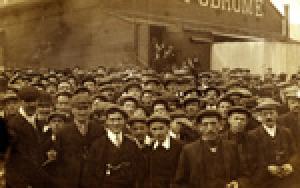The Lucas Aerospace plan was developed in the mid-1970s by workers who wanted to move the aircraft manufacturer away from military production towards socially-useful production, in order to make their jobs more secure and more productive.
Lucas Aerospace had 18,000 workers spread out over Britain in 17 different factories, making collective action a real challenge.
The workforce was also divided into 13 different trade unions, adding to the difficulty of…




